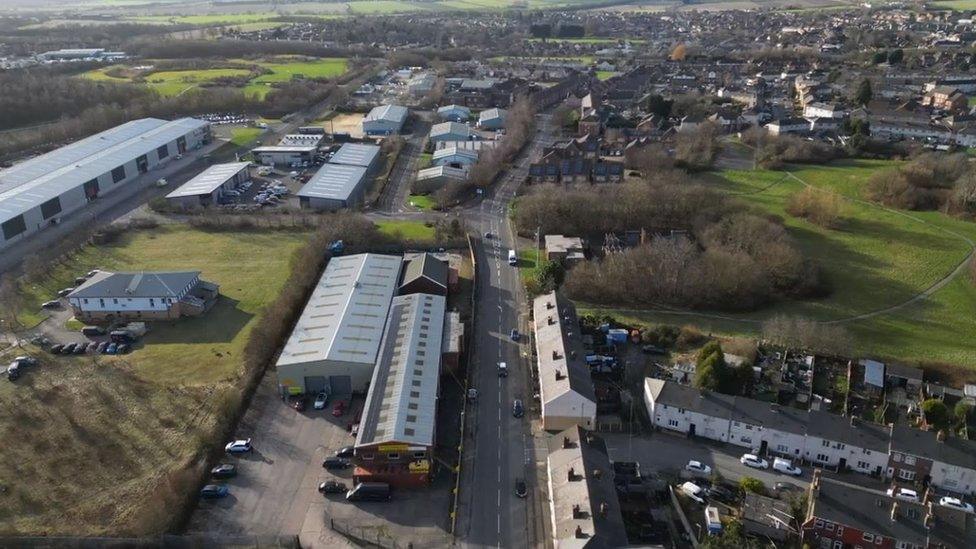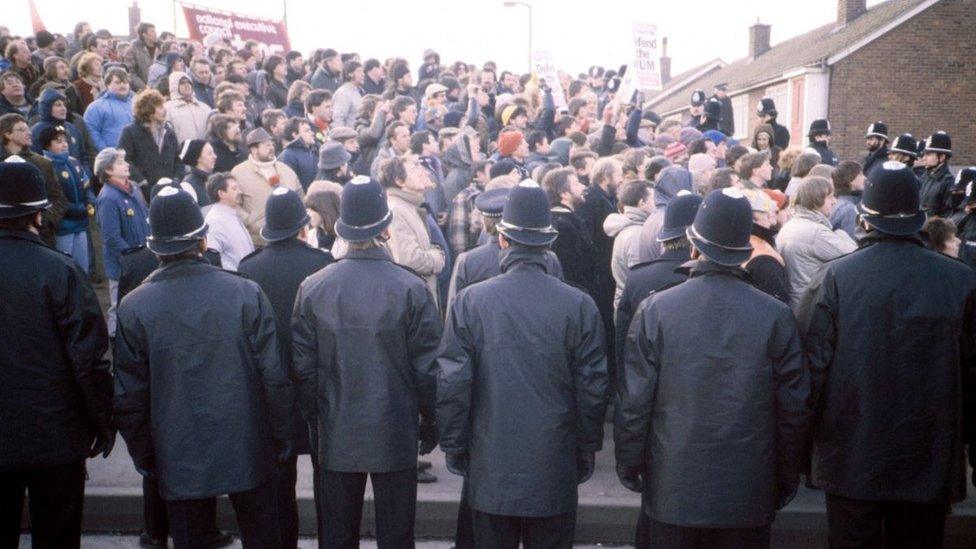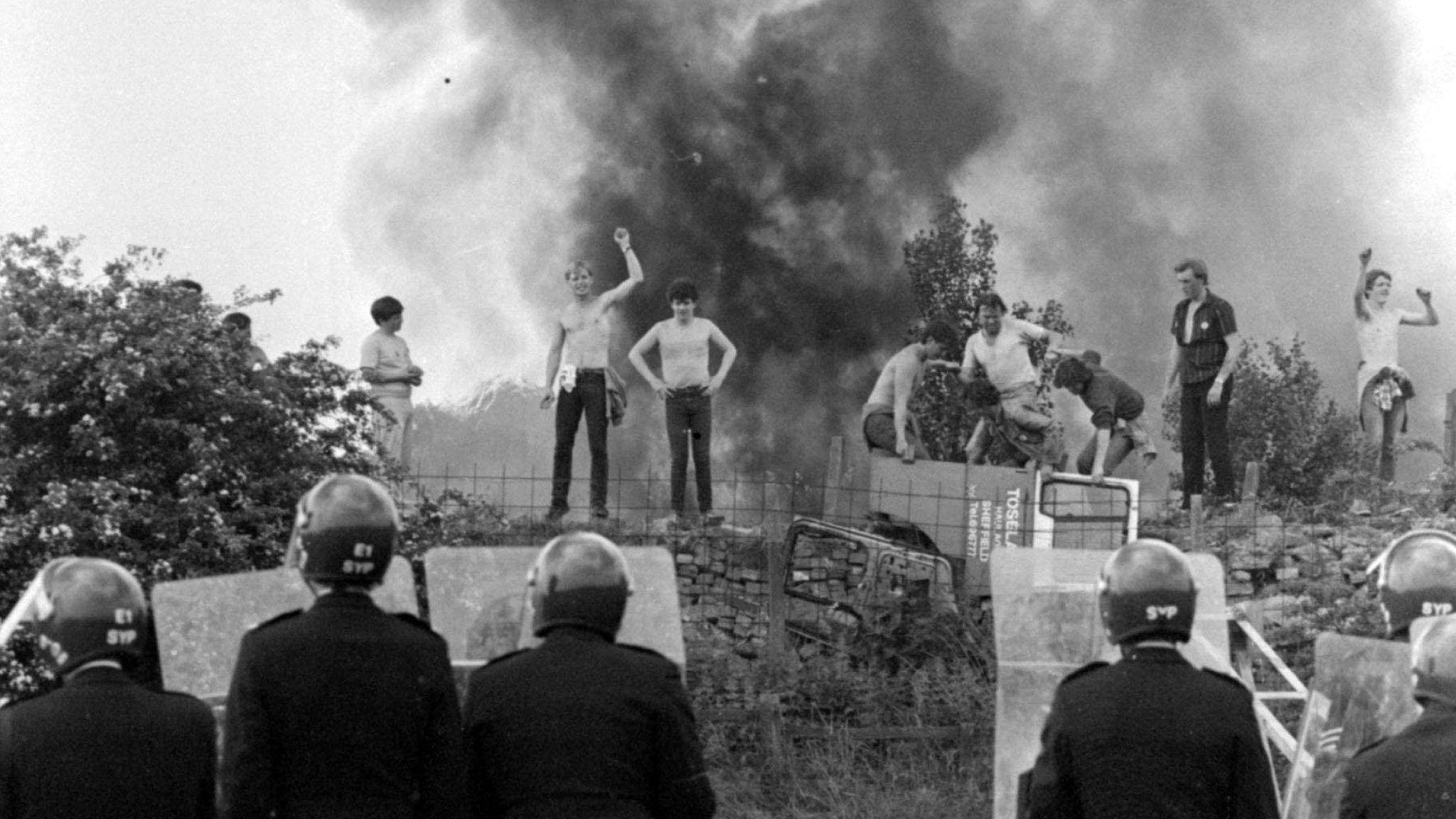Ex-mining areas losing out on 'quality jobs' - report
- Published

In Thurnscoe and other coal towns, warehouses have replaced mining jobs
Forty years on from the miners' strike, fewer "quality jobs" are available in former coal-mining areas than elsewhere, a charity report suggested.
The Coalfields Regeneration Trust (CRT) said job growth in former pit areas was slower than outside, despite some progress.
The CRT said it wanted more support for coalfield communities.
In March, the government said it was committed to improving the lives of "everyone" through levelling-up plans.
The research, carried out by Sheffield Hallam University on behalf of the CRT, found there had been "substantial job growth" in former pit areas, but the rate of growth had been "far slower than in the main regional cities".
In former mining areas there are 57 employee jobs per 100 residents of working age, the report found, compared to a national average of 73.
The figure rose to 88 per 100 in the main regional cities.

The miners' strike of 1984-85 was the biggest industrial dispute in post-war Britain
The report, called "State of the Coalfields 2024", also found the shortage of local jobs meant that many ex-coalfield residents had to commute to neighbouring towns and cities to work.
Many younger people had moved away from the communities where they grew up, the research said, leaving populations "generally older and in poorer health".
Prof Steve Fothergill, report co-author, said: "There has been substantial progress in new job creation and the former coalfields have emerged with new roles in local and regional economies.
"But the full benefits of job growth have not always filtered through to local residents, leaving behind many people and communities."
Warehouse work has become a dominant employer in the former coalfields, the report found.
A survey recently commissioned by the BBC suggested 73% of people living in former mining towns and villages felt they had seen little or no progress on levelling up - the Conservatives' flagship policy aimed at reducing regional inequalities.
'Full potential'
Linda McAvan, CRT chair, said: "We are seeing positive steps towards improving the economy in the former coalfields - however it is concerning that our progress is slower than in other parts of the country.
"We are keen to work with political decision-makers at all levels so that we can enable our communities to reach their full potential."
A Department for Levelling Up, Housing and Communities spokesperson said: "We're supporting everyone, everywhere in the UK - including those in former coalfield communities - to improve their everyday lives through our £15bn levelling up programmes.
"This includes our £1.1bn Long-Term Plan for Towns so local people are empowered to steer their town's regeneration over the next 10 years. Through this initiative, 55 towns, including former mining towns like Accrington, Burnley, Merthyr Tydfil and Chesterfield, will develop Long-Term Plans for regeneration based on local priorities to support transformation projects."

Follow BBC Yorkshire on Facebook, external, X (formerly Twitter), external and Instagram, external. Send your story ideas to yorkslincs.news@bbc.co.uk, external.
Related topics
- Published4 March 2024

- Published15 March 2024

- Published3 March 2024
